The Executive Board reports 2018 / 5
ETH Zurich is launching a comprehensive research initiative in a previously overlooked field of medicine, namely the medium and long-term rehabilitation of patients. The last Executive Board meetings also covered the election of two new ombudspersons, the annual gender monitoring report and the new Financial Regulations.
ETH Zurich once again has three ombudspersons. The Executive Board has elected Margrit Leuthold and Peter Frischknecht to this important role, with effect from 1 October 2018. Together with the current ombudsman, Professor Gerhard Tröster, they will continue the work of Maryvonne Landolt, who has reached retirement age. The ombudspersons act as a contact point for all ETH members who have an issue that they cannot solve through their line managers or superiors. For the first time, the two new ombudspersons were selected on the recommendation of the University Assembly. In an interview published on Internal news, UA President Werner Wegscheider explains the rationale behind the new procedure, the candidate recruitment process and the requirements for ETH ombudspersons.
ETH launches rehabilitation initiative
With the launch of a large-scale rehabilitation initiative, ETH Zurich is seeking to establish itself as a centre of excellence for comprehensive and innovative research in the field of rehabilitation. Eight new professorships are planned across four departments.
“The purpose of the rehabilitation initiative is to deepen our existing expertise in the field of health, where there is still an urgent need for research worldwide”Detlef Günther, Vice President for Research and Corporate Relations
In addition to the three professorships already approved (Data Science for Personalised Health, Mobile Health Systems and Healthy Ageing), the Executive Board has included five more in the professorship plans.
- A new professorship will investigate the acceptance of technology and how people with disabilities participate in society (Disability and Health Technology, D-GESS)
- Another professorship will investigate the effects of new treatments on the health system (Economic Evaluation of Health Programs and Technologies, D-MTEC)
- A third professorship (Personalised Health Care for Spinal Cord Injury, D-HEST) will focus on the development of mobility aids for the rehabilitation of spinal cord injuries
- An additional new professorship will examine how buildings, rooms and facilities can be designed to be more accessible in order to improve the quality of life and wellbeing (Architecture and Health: Empowerment by Inclusive Design, D-ARCH/D-MAVT)
- A fifth professorship will seek to improve wound healing through innovative implants and the treatment of pressure ulcers (Human Wound Healing and Antifibrotic Therapies, D-HEST)
Current rehabilitation strategies focus on the critical phase during the first weeks after injury. Long-term patients are no longer cared for systematically, which can lead to major deterioration in their quality of life. ETH Zurich’s rehabilitation initiative aims to remedy this with an innovative, comprehensive rehabilitation programme that covers all aspects from prevention to long-term support.
Increase in female students
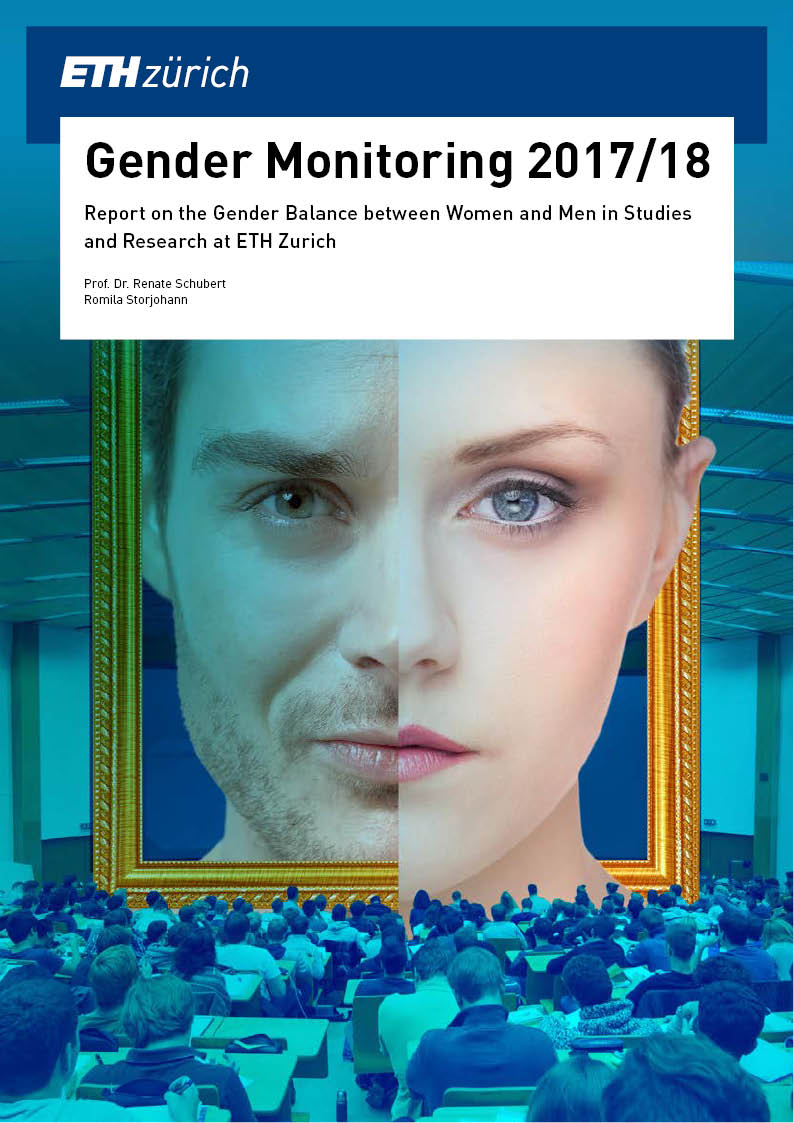
The Executive Board presented the annual Gender Monitoring Report prepared by Renate Schubert, ETH Zurich’s Gender Delegate. As far as the figures are concerned, there have been no substantial new developments. The percentage of women across the various academic tiers is roughly the same as in the previous year. For example, the proportion of women in all professorships (assistant and full professorship) in 2017 was 13.9% (previous year 13.6%), and just under 40% in all new appointments. The proportion of female students grew significantly from the long-standing figure of about 30% to 31.4% in 2017. The report’s focus chapter analyses the internal visibility of female role models. The Gender Monitoring Report can be downloaded in its entirety from equal – the office for equal opportunities for women and men. There is also a shorter version which can be printed out and distributed.
New Financial Regulations approved
The Executive Board has now approved the new, revised Financial Regulations (in German), which will enter into force on 1 January 2019. The consultation procedure for the new financial framework, which took place between March and June 2018 and involved 52 units, showed broad approval. This will provide the basis for the new financial control system that is being set in motion with project refine. Project “refine” aims to upgrade ETH Zurich’s resource and financial platform by the end of 2018. This entails the complete renewal of the technical platform (SAP) and conceptual adjustments to the accounting systems. In future, traditional funds will be replaced by cost centres and WBS elements.
“With the adoption of the new Financial Regulations, we are ready to launch ETH Zurich into a new dimension of resource and financial planning on 9 January 2019”Robert Perich, Vice President for Finance and Controlling
The aim of the project is to strengthen the autonomous financial management of the departments, to give academic units more flexibility and to consolidate the core, supplementary and external third-party budgets. Proven aspects, such as the central role of the budget manager in financial and human resources transactions, will remain unchanged.
The Executive Board re-elected the President’s delegates until 31 December 2019. This re-election takes place in order to ensure continuity at the end of the year during the change in presidency of ETH Zurich, and to ensure that the new president’s room to manoeuvre is not restricted.
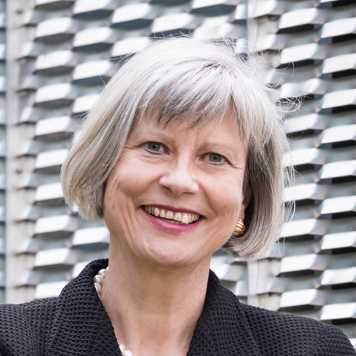
Renate Schubert, Professor of Economics and Associate Vice President for Equal Opportunities
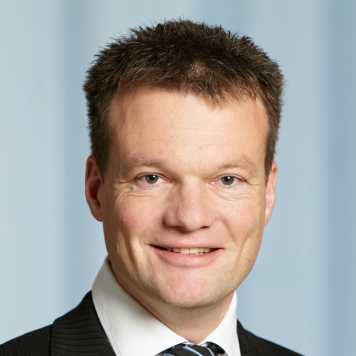
Reto Knutti, Professor of Climate Physics and Associate Vice President for Sustainability
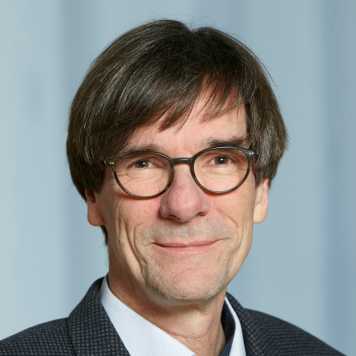
Lothar Thiele, Professor of Computer Engineering and Associate Vice President for Digital Transformation
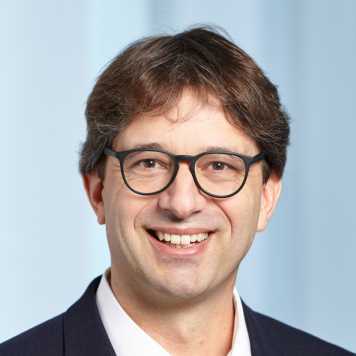
Gisbert Schneider, Professor of Computer-Assisted Drug Design and Associate Vice President for ETH Global
Revised ETH General House Rules
At the request of the Operations Department, the Executive Board has approved a partial revision of the General House Rules of ETH Zurich, following the last partial revision in September 2016. The amendments are modest. It is now stated explicitly that noise and other disturbances must be avoided, in particular during teaching and other events, or the responsible authorities may expel individuals from ETH buildings or areas or prohibit them from entering the building. The provision for students to receive a key for wardrobe lockers, which in fact is no longer possible, has been deleted. The revised house rules came into force on 1 October 2018.
Further Executive Board resolutions in brief
+++ Support is being given to major interdisciplinary projects of high medical relevance within the flagship initiatives of University Medicine Zurich; for example, 2017 Skintegrity and 2018 SleepLoop. These projects, which are financed and awarded jointly with the University of Zurich, will also be commissioned from 2019 to 2022; as a result, the Executive Board has approved project funding of CHF 500,000 per year. Thus, CHF 1 million is available each year for project funding. +++
ETH Zurich will continue to support the Competence Centre “Citizen Science”, operated jointly with the University of Zurich, with a contribution of CHF 200,000 per year. +++
ETH transfer will be expanded with the addition of two full-time positions in the Research Contracts and Spin-off groups. ETH transfer’s Research Contracts group processes more than 1,000 contracts annually, primarily with partners from industry, and this number is increasing rapidly. The Spin-off team will also be strengthened in order to provide initial support to the two dozen or so ETH spin-offs each year, and to enable it to share in the added value of these companies. +++
